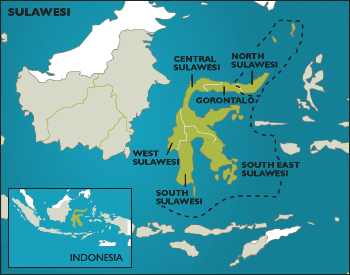Down to Earth No 50 August 2001
Violations of community rights are still continuing as companies and regional governments try to maximise income from the country's mineral resources. At the same time, mining companies are complaining about the "legal vacuum" hampering their operations in Indonesia.
Large-scale mining in Indonesia is in 'legal limbo', as the protesting companies see it, because their contracts, signed during the Suharto era, are being nibbled away by the demands of local governments newly empowered by regional autonomy.

